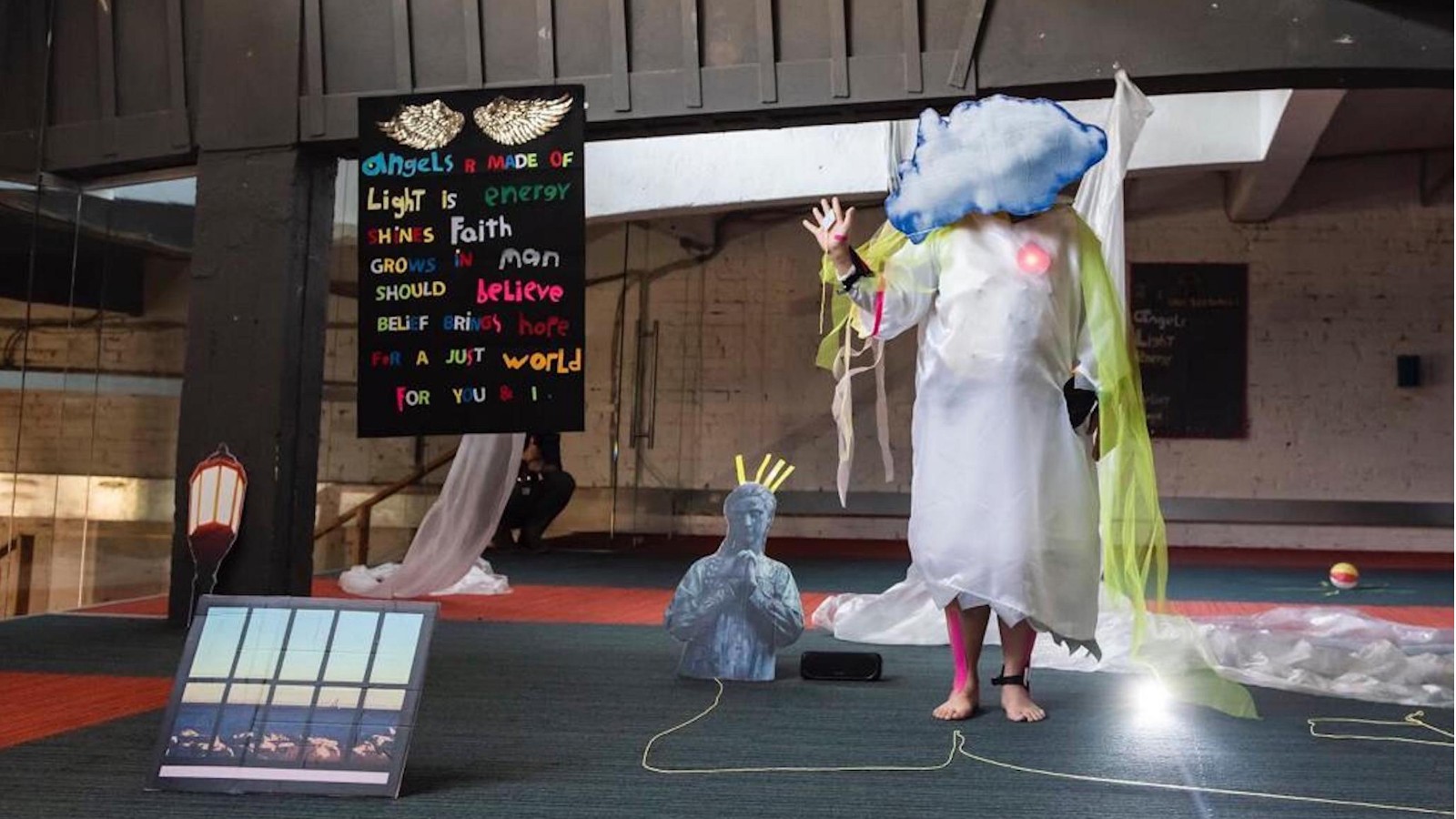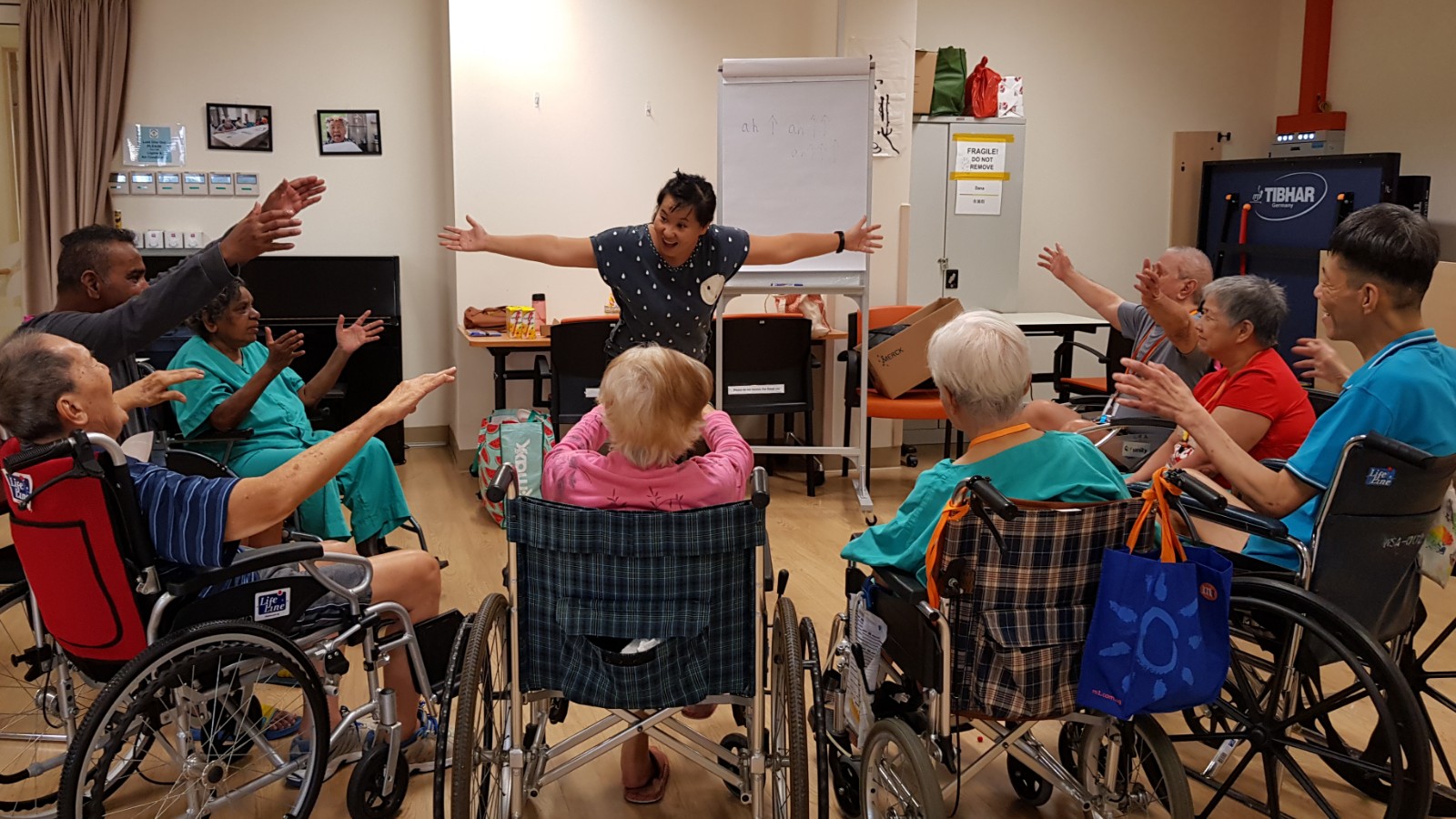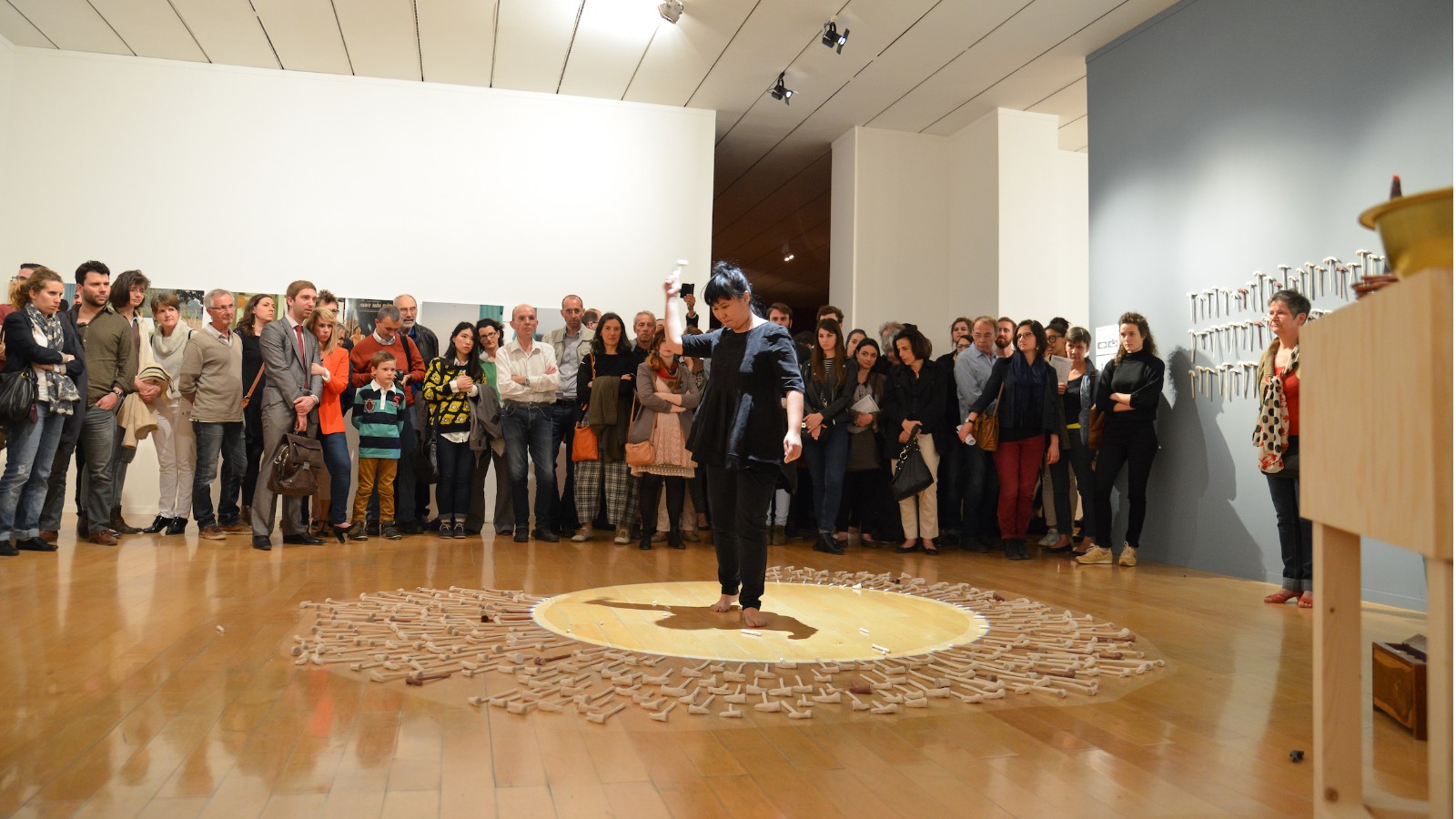2019-12-02
Series "Artist Entrepreneurs"
Authors

anGie seah
is a Singaporean multidisciplinary artist. She has exhibited works, taken part in artist residencies and participated in art festivals in locations worldwide. She is actively involved in many participatory art projects locally and internationally, conducting inter-generational art workshops for families, underprivileged children, youth at risks, children and seniors with special needs. By working within a community is a way for her to attain understanding of the society she lives in.

Polly Crockett
started her career in the arts over 25 years ago. She founded and directed a dance company which still thrives to this day and has created several screen dance projects. She now focuses more on the business and management of the arts industry, specialising in cultural partnerships, organisational development and consultation. She is especially drawn to activities and projects that grow in response to the surrounding social environment and believes that one's focus should never stray too far away from the grass roots.
Combining mission-driven art and self-management in Singapore
Independent artists need to listen to their own moral compass

The success of artists lies very much within their own mission. Often the struggle of earning enough money to live can mean that artists start working in ways that causes exhaustion and upset. anGie seah is an artist living in Singapore who follows her heart and measures success against her level of enjoyment. But, does this pay the bills? It seems that it can.
Series "Artist Entrepreneurs"
In this series, Managing Artists, Polly Crockett talks with independent creators from around the world, who have found ways to manage their own business, whilst succeeding in being artists. Conversations have been turned into written portraits providing the opportunity to read about and appreciate the working life and learned skills that have evolved for each individual.
anGie graduated in Fine Art twenty years ago, aware that the degree alone would not provide a full-time job. Starting off her career in set design and prop making for television to make herself a bit of money enabled her to find the time to create solo exhibitions and museum or gallery shows of her own choice. Over ten years she built a reputation by producing her own art works and did not stop once to think about how much time this was taking. "Voice and body are a powerful sculpture and I began to make a lot of performance placed work. My work is very raw, with an element of play. I enjoy the process of creating it so much that I don’t think about the finished result; I just want to share; I never wondered if this might sell or not. I never thought about being poor, I thought myself rich to be creative.”
There is no doubt that anGie has worked hard to get herself to a position where she can sustain her life purely by being an artist. Three to four years ago anGie was finding life very difficult and the pressure of many projects and her own high expectations made her question her ability to be able to live in such a way. "I am only a human and not a machine. The negative inner voice was telling me that I was not good enough and that others were doing much better than me.” Talking to others who were battling with similar demons made her realise that she should not be doing a project just because it was given to her, "it effected my mental and physical health. I had to learn to say no, to prioritise my work, question time frames, consider who the stakeholders were, and then decide whether I wanted the project.”
So, what has anGie learned over the last twenty years, that has enabled her to work, sustain her living as an artist, relax and enjoy her playful art?
"Maintaining a good track record builds a relationship with funding bodies”
She explains that fifteen years ago government funding in Singapore was very supportive in helping artists to create solo exhibitions, providing a springboard to becoming a sustainable artist. "I think the government senses the importance of arts and culture in governing a young nation. It helps to balance Singapore being an economy-driven country. In many ways the arts cultivate emotional intelligence and heighten sensibility in people.” Singapore Arts Council remains supportive of arts development in people, and whilst government policies changed over time, they still advocate the need to nurture arts professionals. There is a multiple focus including arts in education and communities, traditional arts, curating, management and research. This career guidance and professional development encouragement enables hard working artists to become known and to feel a sense of investment. "Maintaining a good track record builds a relationship with funding bodies. Although I have always made it known that government funding is secondary for me. I work consistently to try an ensure that I can work independently.” This track record has opened doors for anGie introducing her to commission work where she is able to be paid for making works that she wants to make. "I get asked or invited to make projects. My reputation is now working for me.”
anGie makes her working life seem so easy, but she, like many, has had to teach herself how to have a relaxed attitude. "I have had many rejections. But the important part is how you deal with a rejection. We must not instantly think that we are bad at what we do. Rejection is not a reflection of us as individuals. It is an opportunity to reflect and evaluate our work, understand our weaknesses and our strengths. I have never appealed to a rejection; I never want to know why, I just leave it. If it’s not mine, it’s not mine!” She runs her business as an artist from her gut, and a continuous self-reminder keeps her on track. An internal dialogue of working for enjoyment demands the ability to walk away when a project does not feel right. "I could become part of the commercial world, but it is my choice not to; I would question whether it would deepen my soul.” Although she recognises that commercial art is good for the pocket, she questions whether it connects with people. "It’s an illusion; if your work has a high price on it, it is good for your ego. But I want to connect with people; it’s this connection that makes me successful. It is part of my artist integrity to share with the marginal community; it’s interesting to me and fits me inside and out.”
Voluntary work and paid projects
I asked anGie how she addresses projects that do not involve money. "If a project isn’t paid I can still see it as an opportunity for collaboration. Money can kill a relationship. But I am open to being brought dinner or food. I will always look at opportunities from various perspectives, not just money. I gain a lot of good working relationships, collaborating energy is very interesting for me and helps me to develop my own practice in many ways.”
"Management is enjoyable and makes the life of an artist authentic.”
Managing her own business, multi-tasking, keeping track of projects has been self-taught. "Art school doesn’t teach this. Through the years I’ve learned to manage myself this way. It’s neces-sary to make the projects I want to make, and to survive as an artist.” Professional practice has been learned through each step that anGie has taken, but she believes that this is not a generic process: "You need to use your own personality and do it the way you want. Management is en-joyable and makes the life of an artist authentic.” She explains that although structure is needed, it is important for each artist to be present in their own management, and this can mean being creative in the way that this structure is formed.
Reputation works
anGie has a reputation that is now working for her. She recognises that money is occasionally needed, but uses the past few years as evidence that she will survive. Her mission is to make meaning, "if I’m always so comfortable I might become ignorant. It could be a trap.” She is not fearless though, but channels this feeling as ‘improvisation’, ‘reaction’ and ‘responses’. "Fear subsides when challenged. It’s a paradox, I don’t have any in-between, it’s either good or bad, heaven or hell. Be sincere with what you do. I have to trust my intuition, stay organic. Your style progresses through the years and you and your style start to become one.” anGie is lead contin-uously by her conscience, she has desire to produce work that makes her heart sing, albeit at the detriment of low pay, but the undying belief in her own creations has made anGie seah’s work part of the Singapore’s national collection.



There are no comments for this content yet.
similar content

